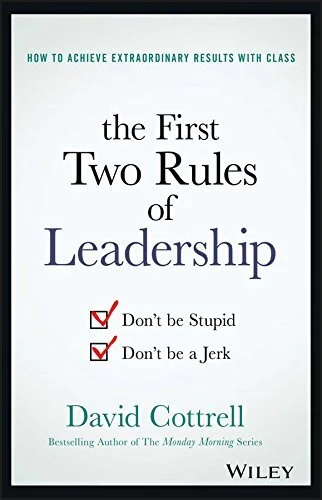There is no such thing as a perfect leader. We all do stupid things and can act like a jerk. What are we willing to do in order to overcome these shortcomings? David Cottrell takes us through how to avoid stupid mistakes and be conscientious of how to lead without being a jerk.
This is an easy book to read and makes a lot of sense. David breaks down the two key topic into sub-categories to help understand the value of being smart about decisions you make as a leader. From hiring the right people, to coaching, concentrating on thing of vital importance, and valuing integrity. He is very convincing in helping readers understand these areas where we can sometimes be stupid.
In the area of not being a jerk, David extols the reader to listen, be decisive, encourage others, and attack complacency. He highlights an anecdotal story of two leaders retiring at the same time. One has a party thrown for them, where others are thanking the retiring leader for always seeking to help others to grow professionally. The other has no one to encourage or thank him because he was so focused on managing tasks that he failed to treat people as humans.
I will take the principles I have learned in this book, and apply them in how I coach and lead others, how I approaching hiring decisions, and making decisions with confidence. I would suggest this book for anyone starting their leadership journey or someone who is interested in being a better leader tomorrow than they were today.











